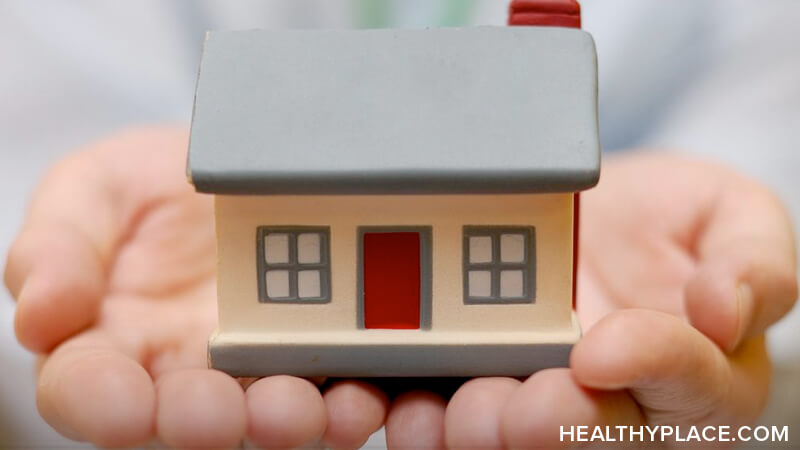Housing for the Mentally Ill: Where to Find It

Understandingly, housing for the mentally ill is just as necessary as it is for those who don't live with mental illness. Housing is a basic human need that provides shelter and stability. By definition, mental illness, in general, is enduring, inflexible, creates significant distress or disability in one or more aspects of life, and causes problems with thoughts, feelings, and/or behavior (How to Find Mental Health Services in Your Area. This can make finding homes for the mentally ill problematic.
Types of Housing for the Mentally Ill
"Housing" is a broad term. It often conjures up thoughts of formal programs. This is accurate, but it's incomplete.
When conceptualized broadly, "housing" refers to having a stable place to live and meet basic human needs. Therefore, homes for the mentally ill can take different forms. The types of places where the mentally ill live depend largely on the severity of the illness and includes:
- fully independent living, solely or as a single parent, managing mental health care autonomously
- fully independent living, with a partner and possibly children to care for, managing mental health care autonomously
- living with informal assistance, such as in the home of a family member
- living with formal assistance individually
- living with formal assistance in a group home with other people with mental illness and around-the-clock assistance from a professional in the broad field of mental health care
- living with formal assistance, in a program that involves the use of single apartments that are part of a service
Formal Housing for the Mentally Ill
Formal housing programs consist of group homes for the mentally ill or individual housing for the mentally ill. Individual housing is known as supportive housing (How To Get Disability Benefits For Mental Illness). Some supportive housing is considered under the umbrella of group housing because it involves a single, official program within a community that houses many people with mental illness; however, supportive housing is simultaneously considered individual since people live in separate apartments.
In supportive housing programs, people live in individual apartments that may be part of a single complex or in individual apartments in different locations throughout the community. The latter is often called supported, rather than supportive, housing, but other than the location of the homes for the mentally ill, the services are the same. Those services involve 24/7 off-site support as well as crisis services.
Studies show that supportive housing programs have measurable and impactful benefits (Harvard Mental Health Letter, 2005). Statistics indicate that when living in supportive homes for the mentally ill, people
- spent 57% fewer days per year in psychiatric hospitals
- made 58% fewer visits to emergency rooms
- had 50% lower rates of imprisonment
Finding Housing for the Mentally Ill
It's frustrating that supportive housing is difficult to find. Programs are competitive, often with long waiting lists. The housing system is difficult for anyone to navigate; add mental illness to the equation and finding housing can be daunting, overwhelming, and seemingly impossible.
Thankfully, finding homes for the mentally ill is not impossible. Resources for finding supportive housing are very similar to resources for finding types of group housing.
- Talk to mental health providers and/or primary care physicians as they often know their community resources.
- Many communities have mental health organizations. The Depression and Bipolar Support Alliance (DBSA) and the National Alliance on Mental Illness (NAMI) are two examples. A visit to their offices can point you in the right direction for finding housing.
- Connect with a social worker or caseworker (the above people and groups can help you find one). These professionals do many things to help people, including help with finding housing.
- State mental health boards (online, search "mental health board" and add your state), can be a source of information about agencies and programs.
- The Department of Housing and Urban Development (HUD) has a list of their programs by state. A caveat with these particular programs is that one likely needs homeless status to qualify (Mental Illness and Homelessness).
Finding housing for the mentally ill is crucial in helping people manage mental illness and decreasing the amount of disability and impairment they're experiencing. Stable housing is an important step toward mental wellness.
APA Reference
Peterson, T.
(2019, September 30). Housing for the Mentally Ill: Where to Find It, HealthyPlace. Retrieved
on 2024, June 20 from https://www.healthyplace.com/other-info/mental-illness-overview/housing-for-the-mentally-ill-where-to-find-it



